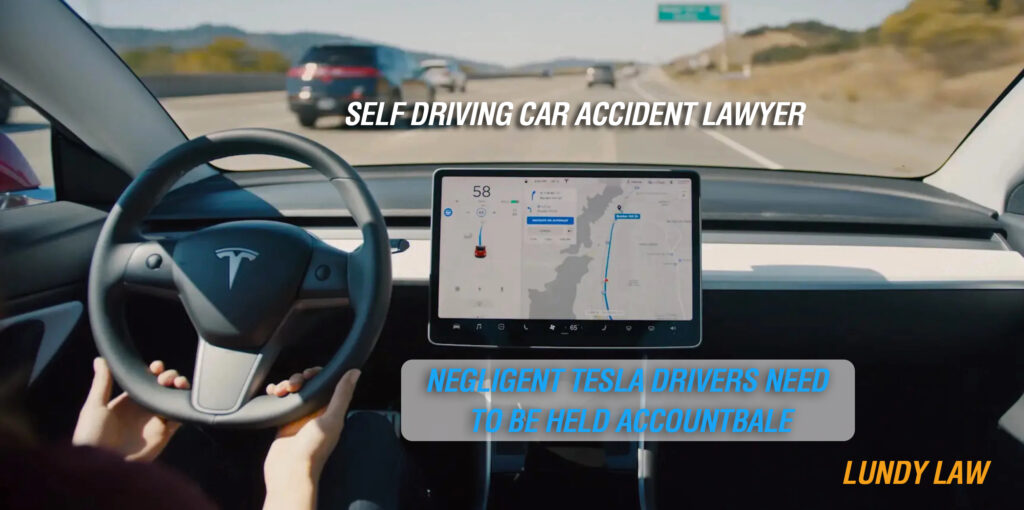The Dangers of Autopilot in a Tesla
In recent years, Tesla has become synonymous with cutting-edge technology. The company’s all-electric cars are some of the most popular on the market, and their self-driving “Autopilot” feature has been praised by many as the future of transportation. However, Tesla’s Autopilot feature has also been linked to a number of accidents, and some experts say it is not as safe as the company claims.
In 2016, a Tesla Model S driver was killed in Florida when his car collided with a truck while the Autopilot feature was engaged. The National Highway Traffic Safety Administration later launched an investigation into the incident.
Since then, there have been several other reports of accidents involving Tesla cars with the Autopilot feature engaged. In some cases, drivers have reported that the car suddenly accelerated or veered off course for no apparent reason.
Tesla has defended the safety of its Autopilot feature, saying that it is designed to assist drivers, not replace them. The company has also said that drivers must keep their hands on the wheel and be prepared to take over at any time.
However, some safety experts say that Tesla’s claims about the safety of Autopilot are misleading. They point to the fact that Tesla encourages drivers to use the feature for long periods of time, even though it is only meant to be used for short periods of time.
They also say that the feature gives drivers a false sense of security, as it is not as advanced as Tesla claims. In reality, they say, the Autopilot feature is still in its early stages of development and should not be relied on by drivers.
Who is held Liable in a Tesla Autopilot Car Crash Personal Injury Case
Human Operator:
In most cases, the human operator is held liable in a Tesla autopilot crash. This is because the driver is responsible for ensuring that the car is operated safely and within the limits of the Autopilot system.
If the driver does not maintain control of the car or fails to take over when necessary, they can be held liable for any accidents that occur.
Manufacturer:
In some cases, however, the manufacturer may be held liable if the Autopilot system is found to be defective. This can happen if the system fails to work as intended or if it does not meet safety standards.
If you have been involved in an accident while using the Autopilot feature, it is important to speak to an experienced car accident lawyer. They will be able to investigate the cause of the accident and determine who is liable.
Regulations of Self Driving Cars
As autonomous vehicles become increasingly common, it is important to understand the regulation of these vehicles. Currently, there is no federal law governing autonomous vehicles. however, states are beginning to pass their own laws and regulations. Most states have passed laws that allow for the testing of autonomous vehicles on public roads. However, these laws typically require a human driver to be present in the vehicle in case of an emergency. A few states, such as California and Nevada, have passed laws that allow for the operation of autonomous vehicles without a human driver. However, these laws typically place strict limits on where and how these vehicles can be operated. As the technology continues to develop, it is likely that the laws and regulations surrounding autonomous vehicles will continue to evolve.
Objective View of Tesla Autopilot: Pros And Cons Of Self-Driving Cars
Pros of Self Driving Cars:
- 1. Reduced accidents: Self-driving cars are equipped with sensors and software that allow them to reacting faster than humans to potential dangers on the road. This could help to reduce the number of accidents that occur each year.
- 2. Increased efficiency: Self-driving cars can communicate with each other and share information about traffic conditions, which could help to reduce congestion and make driving more efficient.
- 3. Improved accessibility: Self-driving cars could provide transportation for those who are unable to drive, such as the elderly or those with disabilities.
Cons of Self Driving Cars:
- 1. Loss of jobs: Self-driving cars could result in the loss of jobs for professional drivers, such as taxi and truck drivers.
- 2. Privacy concerns: Self-driving cars collect data about their surroundings, which could pose a privacy risk.
- 3. Hacking: Self-driving cars are vulnerable to hacking, which could provide criminals with the ability to control the vehicle or access sensitive information.
Self-driving cars are a rapidly developing technology that could have a significant impact on society. It is important to consider both the pros and cons of this technology before it becomes widely available.
How can Tesla Autopilot Error Cause Auto Accidents
Tesla’s autopilot system is a driver assistance system that is designed to help drivers with certain tasks, such as lane keeping and parking. However, the system is not perfect and errors can occur. If a driver does not maintain control of the car or fails to take over when necessary, they can be held liable for any accidents that occur.
Auto Pilot Error Killing Driver
There have been a number of accidents involving Tesla’s autopilot system. In March 2018, a Tesla Model X collided with a highway barrier in California, killing the driver. The accident was caused by a software error that failed to detect the highway barrier.
Auto Pilot Error with Tractor Trailer Killing Driver
In May 2016, a Tesla Model S collided with a tractor-trailer in Florida, killing the driver. The accident was caused by the driver’s failure to take over when the autopilot system failed to detect the truck.
Self-Driving Car Autopilot Accident Attorneys
If you have been involved in an accident with a self-driving car, you may be entitled to compensation. The experienced Pennsylvania self-driving car accident attorneys at Lundy Law can help you understand your rights and options. Contact us today for a free consultation.











